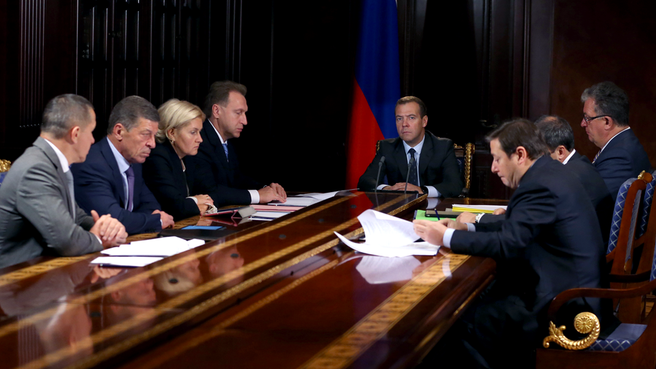Free Port Vladivostok.
From the transcript:
Dmitry Medvedev: The law on the Free Port Vladivostok enters into effect today. This is yet another step towards unleashing the unique potential of Russia’s Far East as a place to live and do business. It is here that cutting-edge and competitive production facilities should be established, modern transport infrastructure built and tens of thousands of jobs created.
The port regime will cover 15 municipalities that are now home to the Zarubino and Nakhodka seaports, as well as airports and a number of other locations. Residents will receive a wide range of benefits, including tax, customs and administrative benefits. The corporate tax will be administered at a preferential rate of 10 percent over the next decade. The visa regime will be relaxed for the free port, alongside efforts to cut red tape.
The port’s supervisory board is being formed. It will include both government officials and business executives.
Yury Trutnev: The law has come into effect, and the relevant regulatory acts are in the pipeline. The last one, dealing with the criteria for selecting residents, will be submitted to the Government at its next meeting.
The supervisory board will start its work next week in Vladivostok. We will be recruiting the first residents. There are currently about 30 candidates. The board will examine such projects as the Vladivostok Sea Fish Port, Tranzit-DV group, Summa and Sumotori Technology Complex. We have set relatively low criteria in terms of investment, since we want to attract both small and medium-sized enterprises. However, these should be dynamic companies that are setting up new production facilities.
Documents on the creation of a similar regime in four other constituent entities of the Russian Federation have been drafted: in the Kamchatka Territory, the Khabarovsk Territory, the Sakhalin Region and the Chukotka Autonomous Area.
Dmitry Medvedev: It has to be seen how the free port system will work in Vladivostok. We will analyse the preliminary results to determine how to use this approach across Russia and whether it needs any adjustments, although this practice is universally accepted and quite valuable.











